Welcome to our practice! We're thrilled to have you join our community and are committed to providing you with the best care possible. As a new patient, you'll find that our registration process is straightforward and designed to cater to your needs. Ready to get started? Let's dive into the details and make your initial experience seamless!
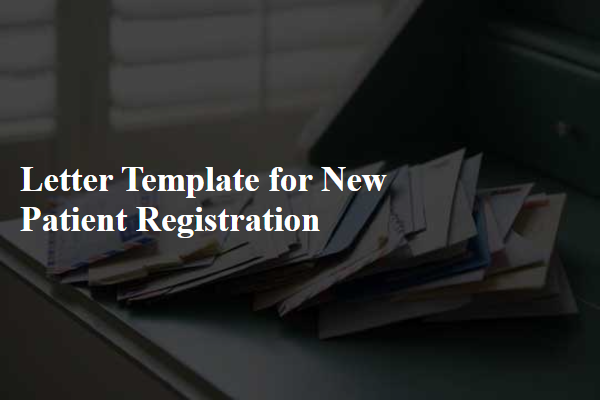
Patient Information Collection
New patient registration involves gathering essential patient information for medical records. Personal details such as full name, date of birth, and gender create a foundational profile. Contact information (phone number, email address) ensures effective communication between medical staff and patients. Insurance details, including provider name and policy number, facilitate billing processes. Medical history encompasses previous diagnoses, allergies, and current medications to inform treatment plans. Emergency contact information is critical for patient safety, designating someone to reach in urgent medical situations. Location information, such as home address, assists in logistical planning and compliance with local health regulations. Data security is paramount to maintain confidentiality in healthcare settings.
Privacy and Consent Agreement
New patient registration involves the essential process of establishing a privacy and consent agreement, crucial for protecting personal health information (PHI). Healthcare facilities, such as hospitals or clinics, require patients to consent to the collection, use, and sharing of their PHI for treatment, payment, and healthcare operations. This agreement outlines patient rights under regulations like the Health Insurance Portability and Accountability Act (HIPAA) of 1996, ensuring confidentiality and security of sensitive data. Patients must be informed about the facility's policies on data storage, access limitations, and the potential for information sharing with third parties, such as insurance providers. Understanding this agreement is vital for fostering trust and compliance in patient-provider relationships.
Contact and Insurance Details
New patient registration forms often require essential information to facilitate effective patient care and billing processes. Contact details include full name, date of birth, phone number, email address, and residential address to ensure accurate communication and patient record management. Insurance information consists of provider name, policy number, group number, coverage details, and the insured's relationship to the patient, allowing healthcare facilities to verify benefits, submit claims, and streamline payment for services rendered. Collecting this information thoroughly enhances patient experience and operational efficiency in clinics and hospitals.
Medical History Questionnaire
Completing a Medical History Questionnaire is an essential step for new patients to receive personalized care in healthcare facilities. This document typically requires detailed information about prior medical events, current medications (including dosages and schedules), allergies to substances (such as penicillin or peanuts), and family health history (indicating hereditary conditions such as diabetes or heart diseases). Patients are often asked to document any chronic conditions, surgeries, or hospitalizations they have experienced in the past. Additionally, lifestyle factors, including tobacco use, alcohol consumption, and exercise habits, can provide healthcare providers with a comprehensive view of the patient's overall health. Accurate and thorough responses ensure tailored treatment plans, optimal medication management, and proactive health monitoring.
Appointment Scheduling Instructions
New patient registration is crucial for seamless healthcare management in medical facilities. Detailed appointment scheduling instructions ensure that new patients, typically those attending their first-ever visit to a healthcare provider, understand the necessary steps. Registration often involves collecting personal information such as name, date of birth, and contact details, alongside insurance information if applicable. Patients should be guided through online platforms, ensuring they select available dates and times that align with their schedules. Information about preparation for appointments, including documentation (like identification and prior medical records), should be clearly stated. Emphasis on confirmation procedures, including follow-up reminders via email or text message, helps patients remember their appointments at facilities such as general practices or specialized clinics.

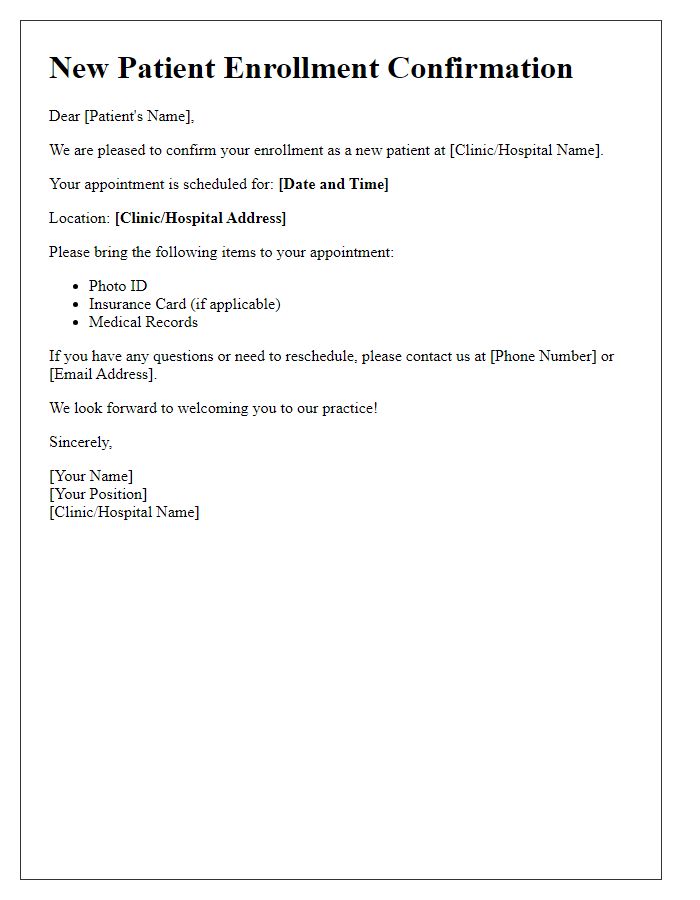
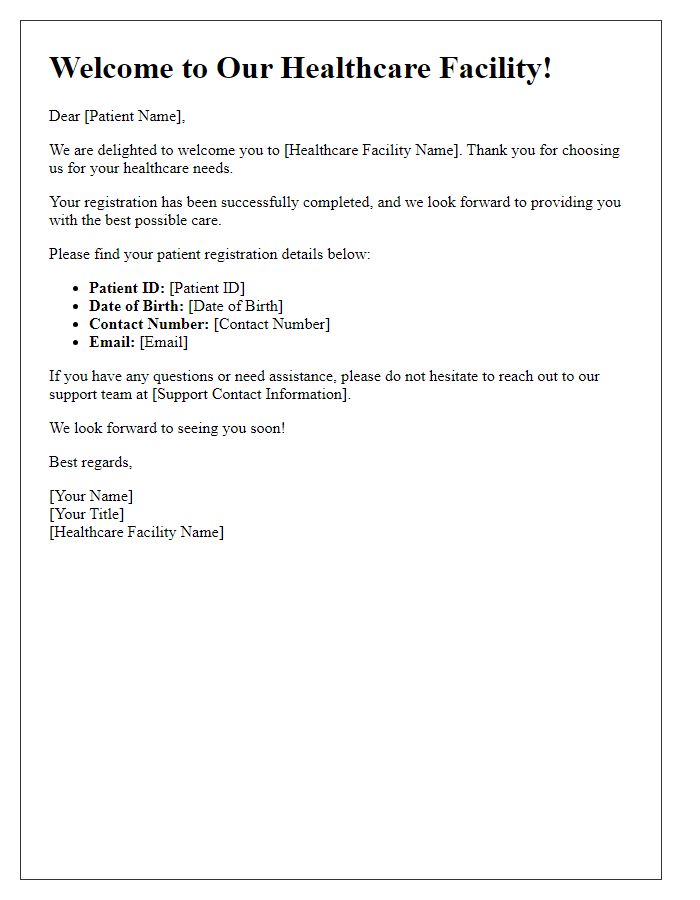
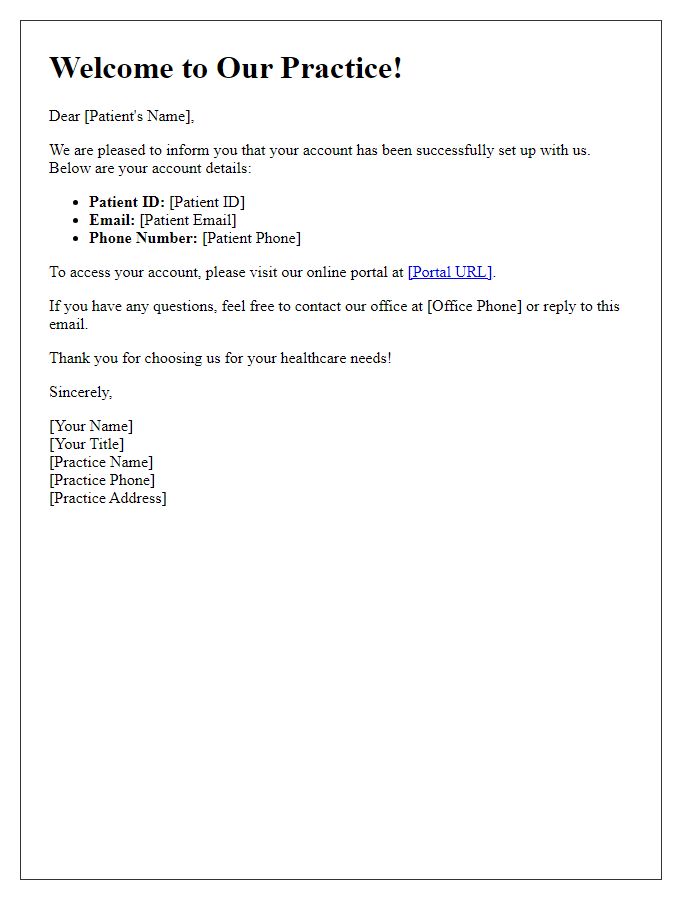
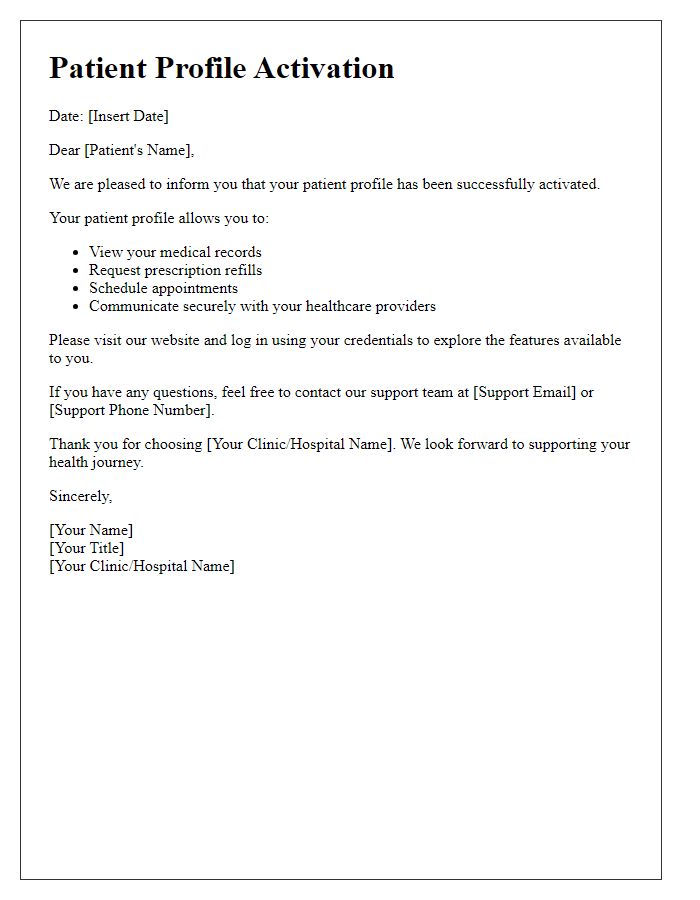
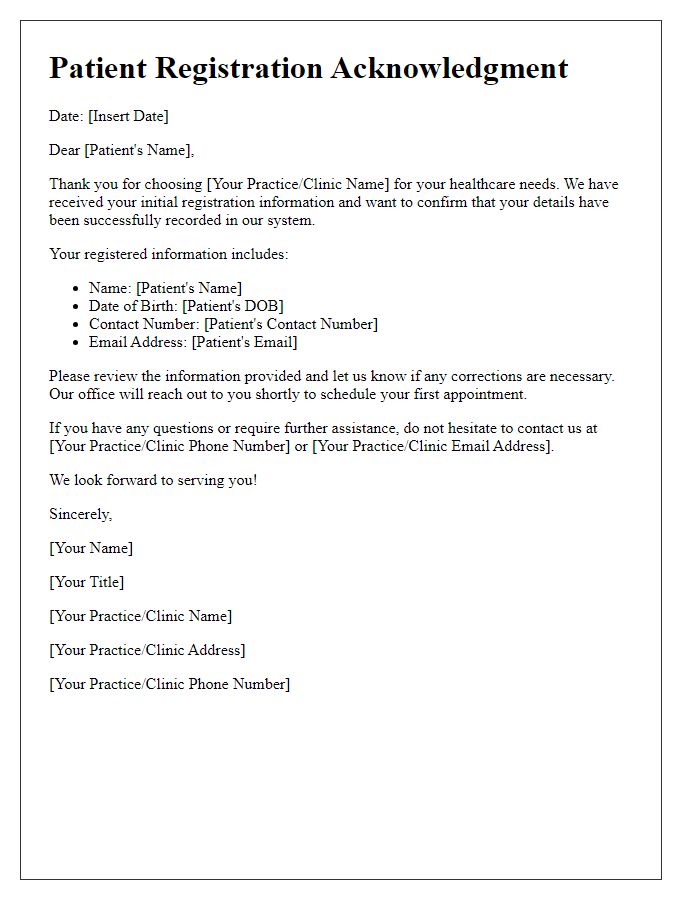
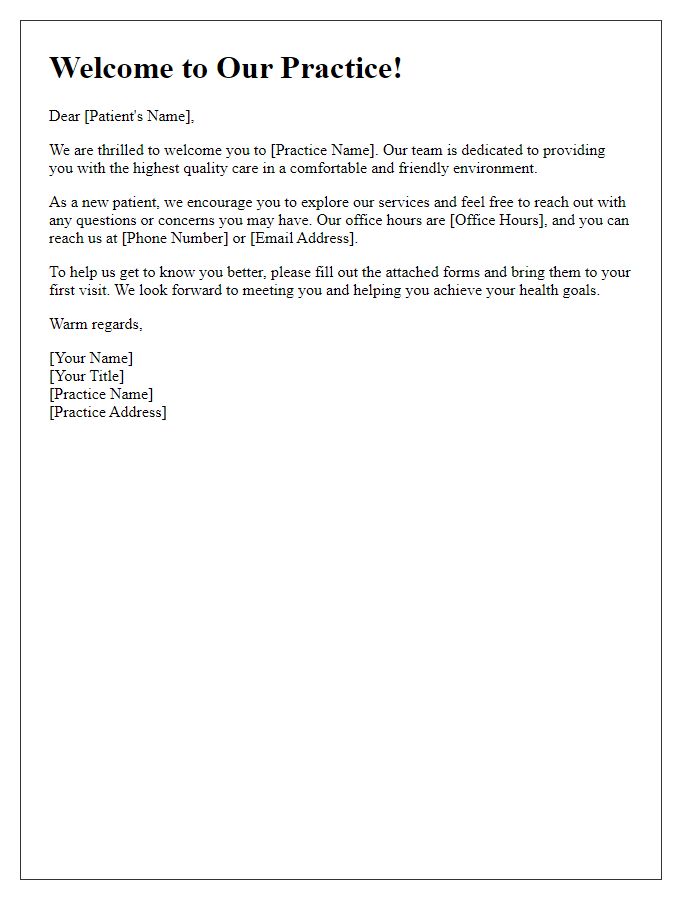
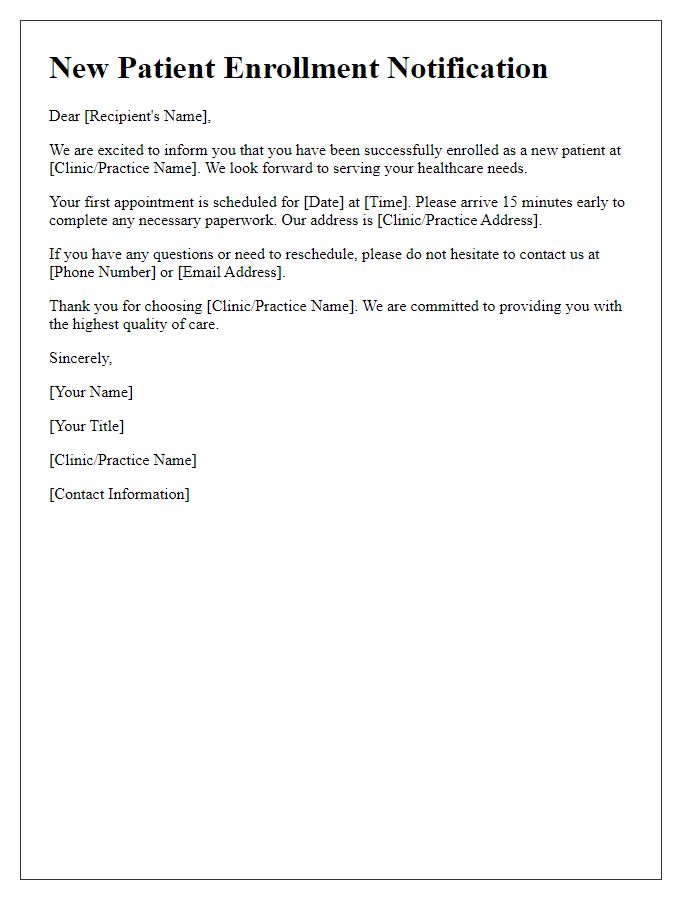
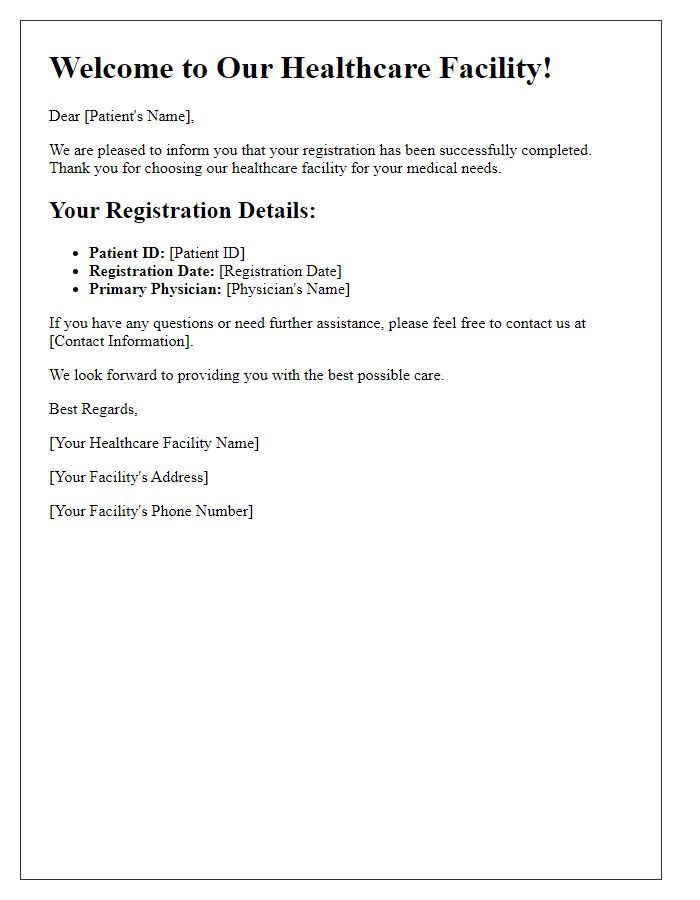
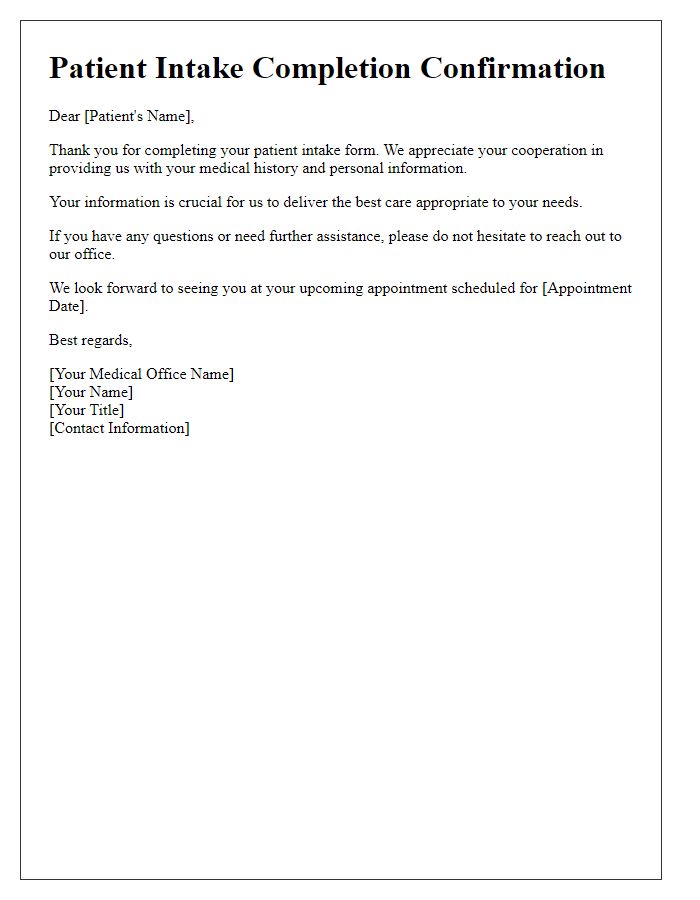
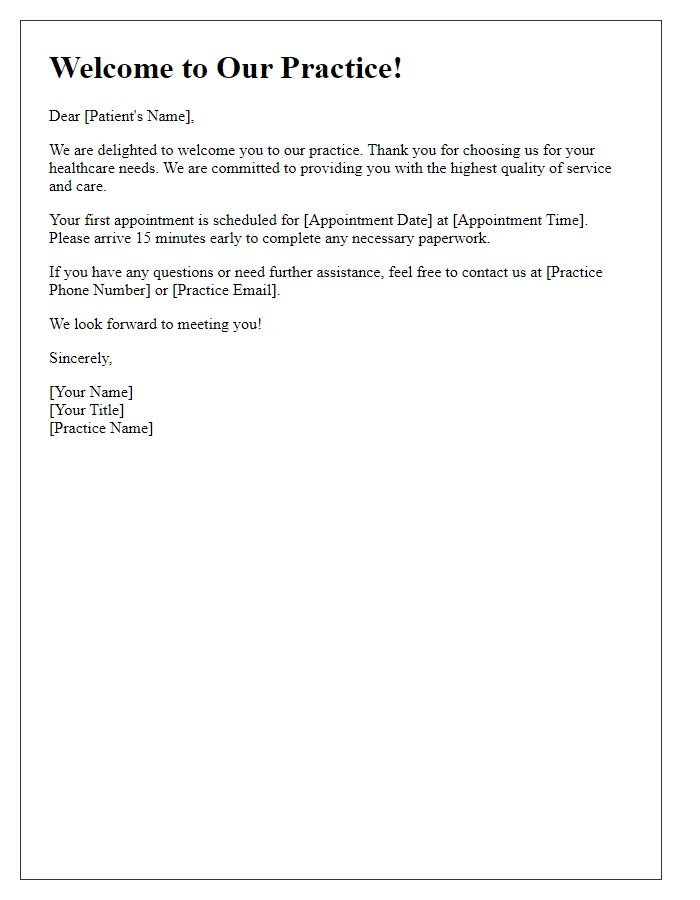

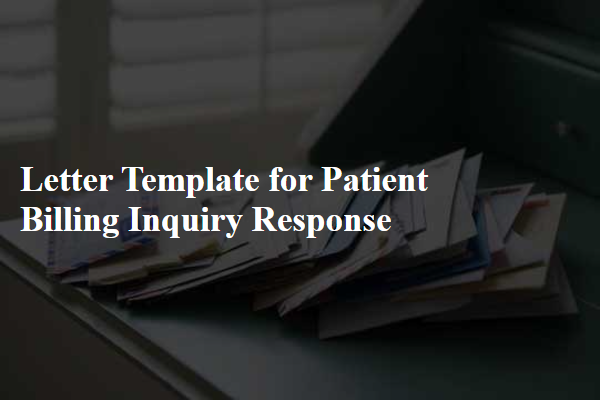
Comments